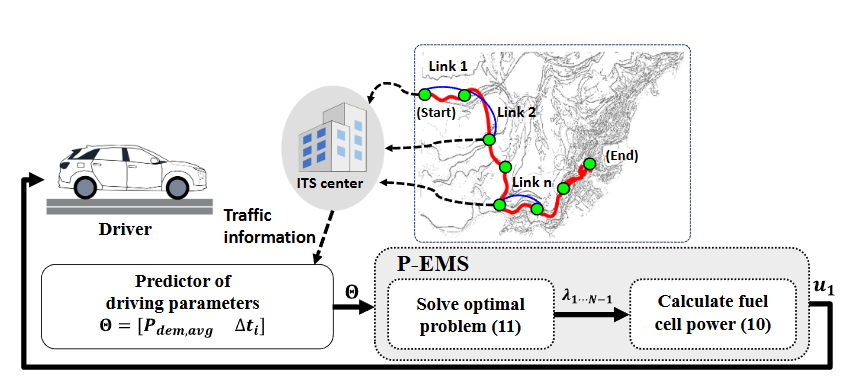Stack Degradation Protection of FCEVs via Predictive Energy Management Strategy with Segmented Roads
- Abstract
- Additional Comments
Proton exchange membrane (PEM) fuel cell electric vehicles (FCEVs) have gained attention owing to their significant advantages, including rapid refueling times, exceptional energy efficiency, and zero emissions. Nonetheless, FCEVs have a durability issue, a substantial obstacle to the widespread adoption of applications. This study proposes a novel predictive energy management strategy (P-EMS) with segmented roads that strikes a delicate balance between optimizing fuel consumption and safeguarding the durability of the stacks. Dynamic load and high-power operations are deemed avoidable operating conditions, and a control strategy is designed to avoid these factors. Subsequently, the optimal control problem is reformulated within road segments, transforming it into a quadratic programming (QP) framework. This allows for the utilization of model predictive control (MPC) to efficiently solve the optimal control problems. The reformulated problem needs the predictable driving parameters of each road segment, including travel time and average power demand. The simulation results show that the proposed method successfully avoids excessive stack degradation, even at the expense of some reduction in fuel consumption. Compared to dynamic programming (DP), which only considers fuel consumption, the proposed method shows superior performance in safeguarding stack degradation, showing 29% performance improvement, with only an 11% mileage decrease.
